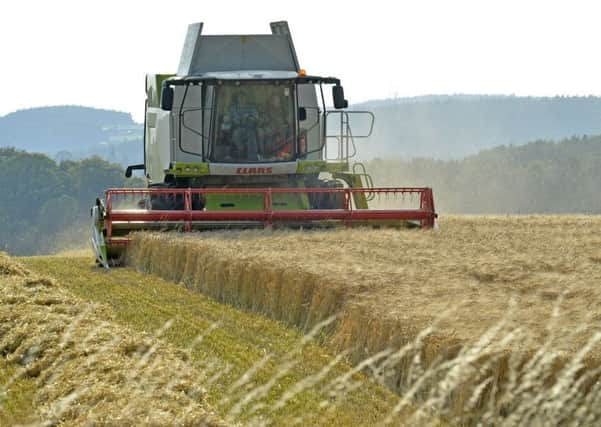Ministers urged to scrap '˜perverse' farm payments by 2025 and phase out trade tariffs


Researchers at Policy Exchange argue that the current protectionist approach of the EU Common Agricultural Policy (CAP) is undermining competition and encouraging inefficiency in the British farming sector.
The UK should instead aim to open up trade in food products by adopting lower tariffs on agricultural imports with countries like the US and updating food standards to bring them in line with the latest scientific advice. It should also aim to phase out income support for farmers as early as 2025, replacing these payments with a system that focusses on protecting the natural environment.
Advertisement
Hide AdAdvertisement
Hide AdThe recommendations outlined in the organisation’s Farming Tomorrow report could prove unpopular with many in the food and farming industry, who have warned that reducing post-Brexit trade barriers and subsidies could result in a decline in domestic animal welfare standards as British farmers struggle to compete with cheaper, lower quality imports.
The NFU has previously warned that a unilateral lowering of British tariffs could be “damaging” and risked putting “many UK farm businesses... at significant competitive disadvantage”.
The report also comes amid an ongoing row in the Cabinet over imports of chlorinated chicken from the US. These products are currently barred by the EU for fear they might encourage unsafe practices elsewhere, but critics argues there is little evidence to suggest the chicken itself is unsafe.
Policy Exchange director of research, Warwick Lightfoot, said the primary goals of Government intervention in agriculture post-Brexit should still include the preservation of high standards for environmental protection, food safety, and animal welfare.
Advertisement
Hide AdAdvertisement
Hide AdBut he said the EU’s “historic reluctance to open up trade in food products” has repeatedly stymied trade deals and led to higher prices for consumers.
“Leaving the European Union allows us to think again about agricultural policy from first principles,” he said. “While we are in the EU, 87% of UK farming income comes from subsidies, a perverse and unsustainable state of affairs.
“The UK can now lead the world in cutting tariffs and being a champion of free trade in agriculture.
“Reform of the CAP also offers a once in a generation chance to reform Britain’s environmental policy, and ensure that we leave the environment better than we found it.”